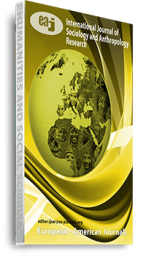This research aimed to examine the social space of Myanmar migrant labourers within Thai society. The study applied a qualitative approach in studying Myanmar migrants working in Samut Sakhon Province, Thailand. The key informants were migrant labourers specifically selected from the populated area of Maueng District. The data was collected by in-depth interviews, participatory and non-participatory observations during 2014. Content analysis was employed to draw findings from the data. The findings revealed that migrant workers used the physical space of Thai Buddhist temples located in their residential community to reproduce their cultural and traditional activities on their non-working day which was Sunday. This was generally concerned with Buddhist religious beliefs, worship, and the paying of respect to spirits which created personal contentment. They had time on holidays and after work to socialize and interact with others at shops in the nearby market place, especially Gwyn and tea shops. This inherited tradition and culture was reproduced in the new location resulting in the reproduction of values within new social spaces in Thailand. The obvious way of maintaining Myanmar culture in these new social spaces included the wearing of traditional clothes, speaking their own mother language, chewing Gwyn and drinking tea, and using goods imported from their home country.
Keywords: Myanmar migrant labourers, Social space, Thai society

